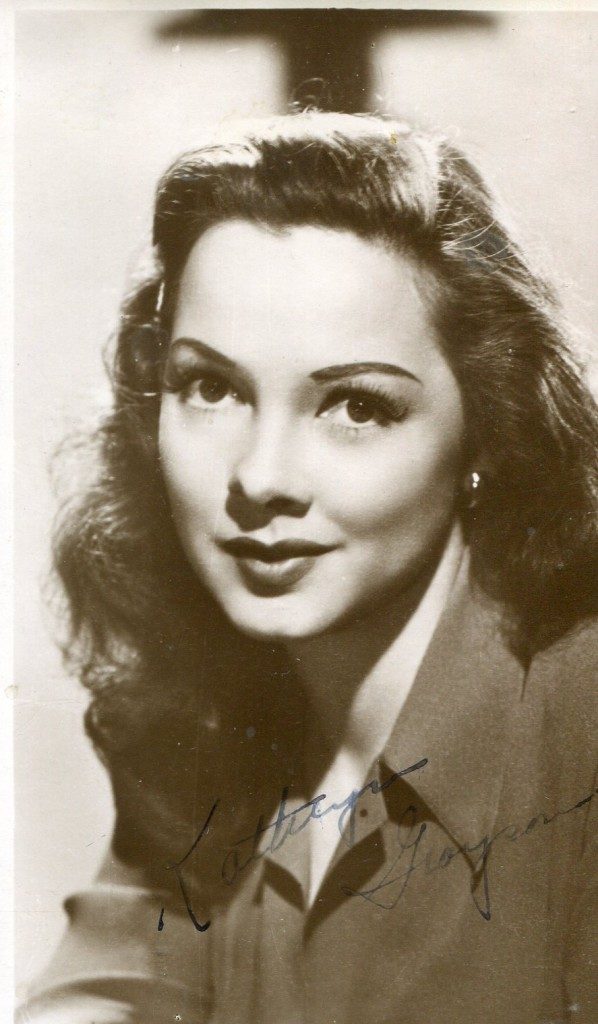
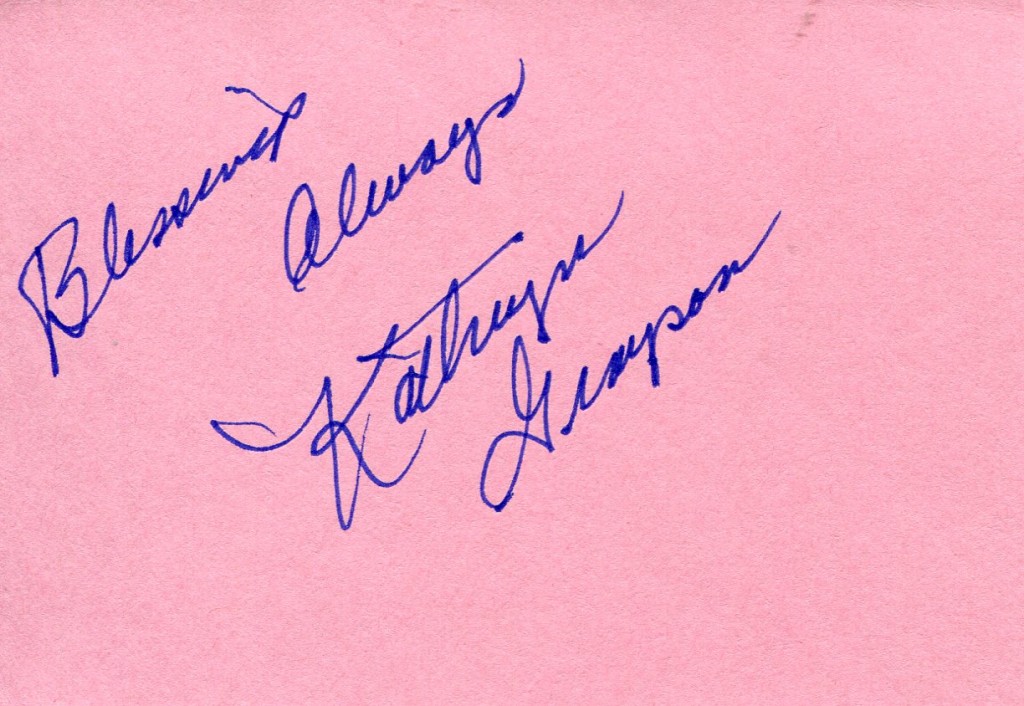
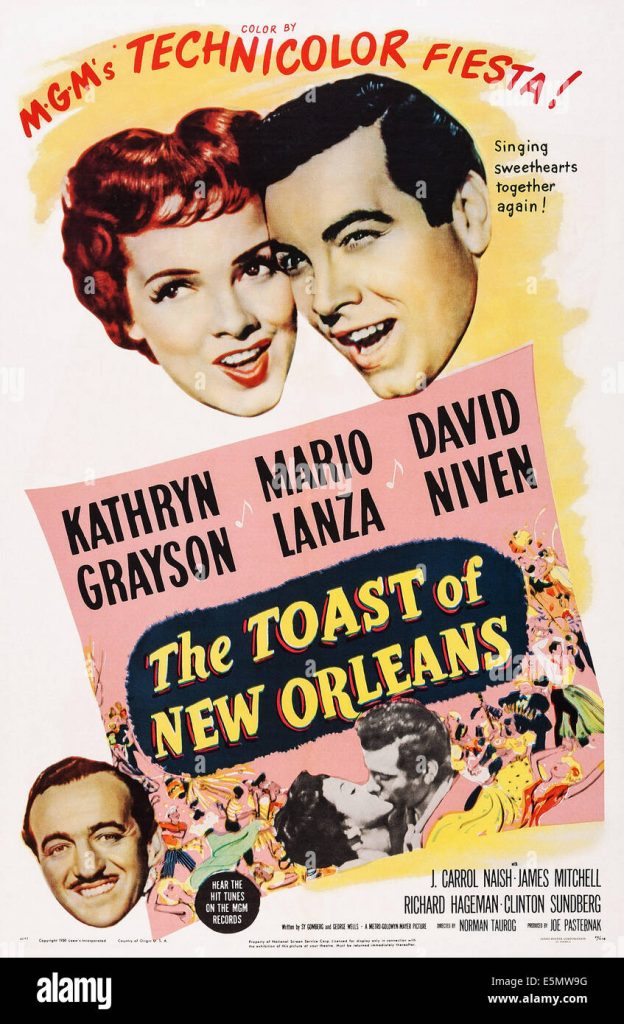
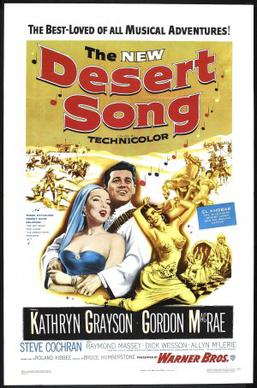
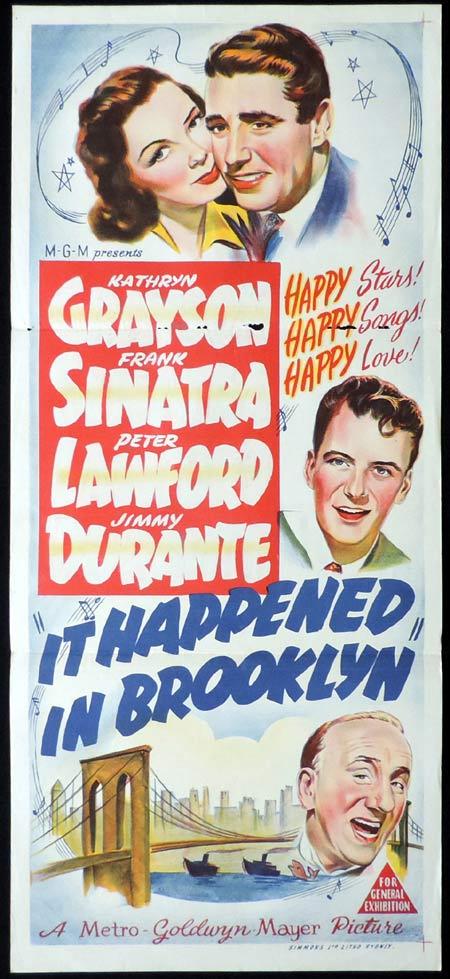
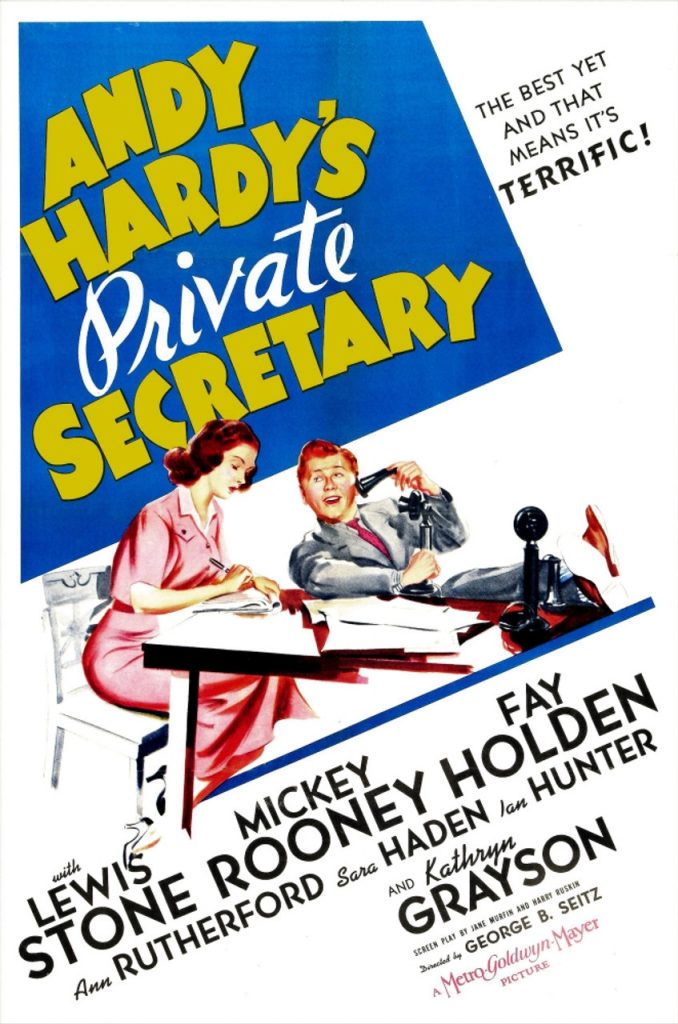
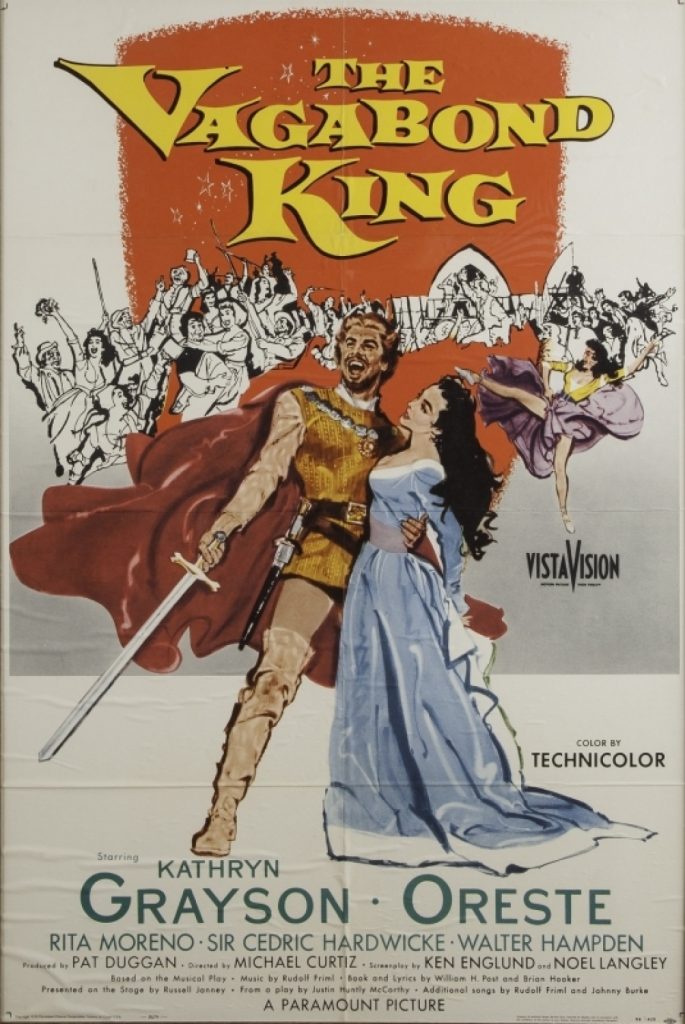
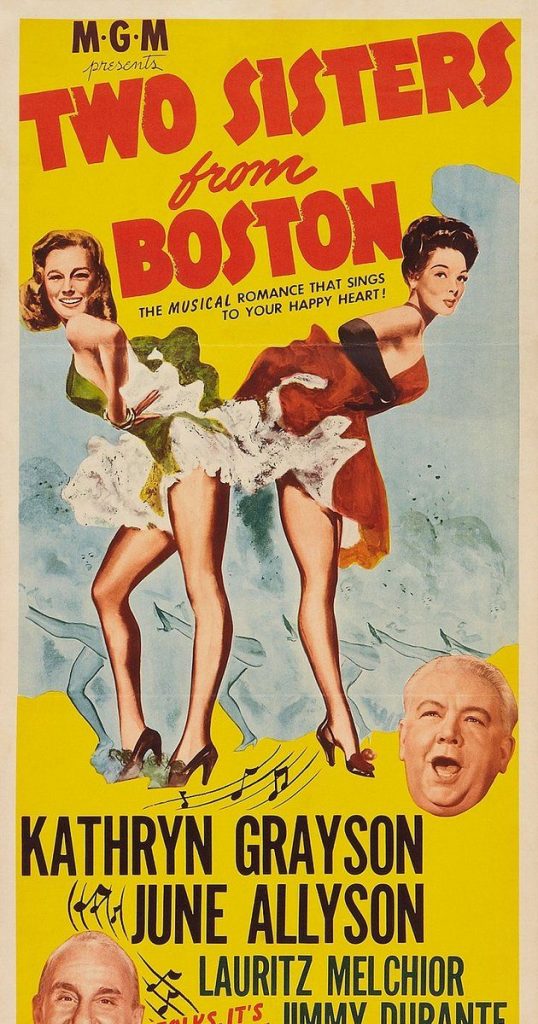
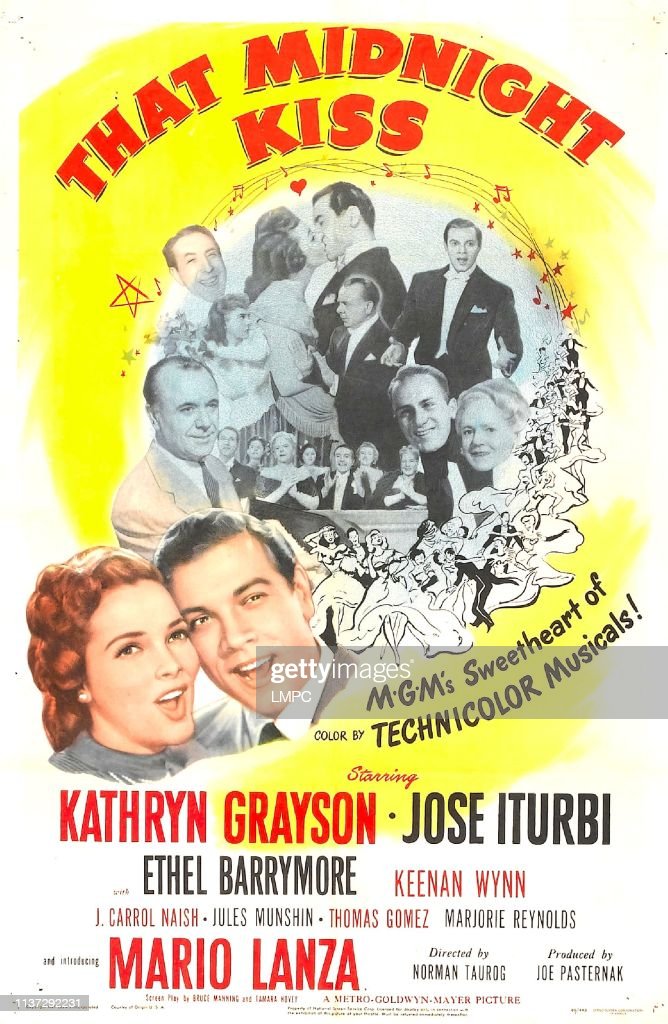
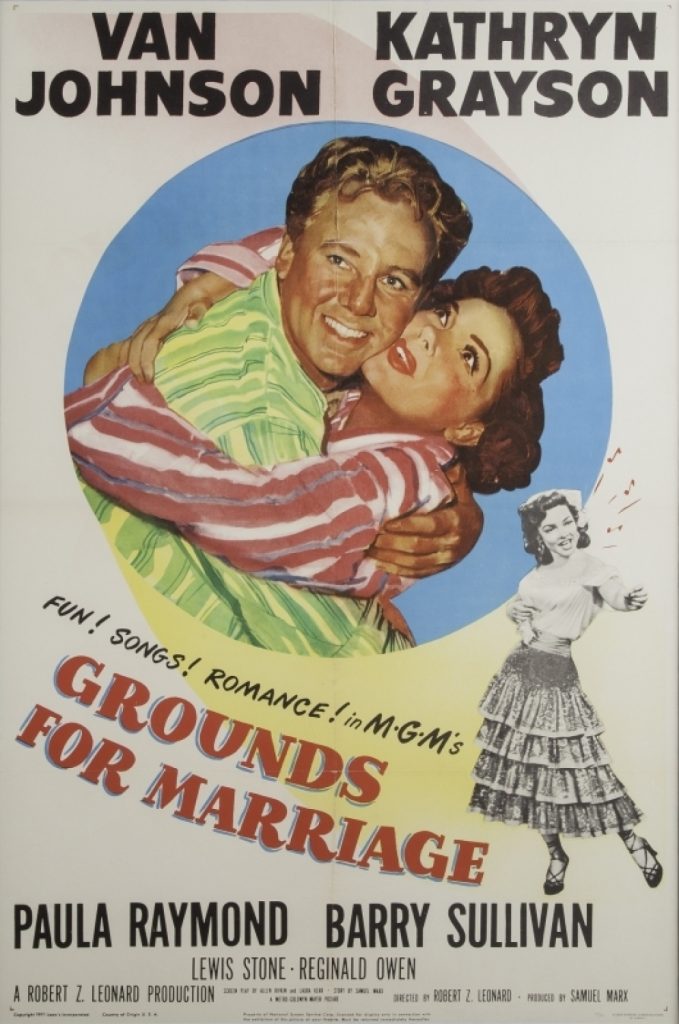
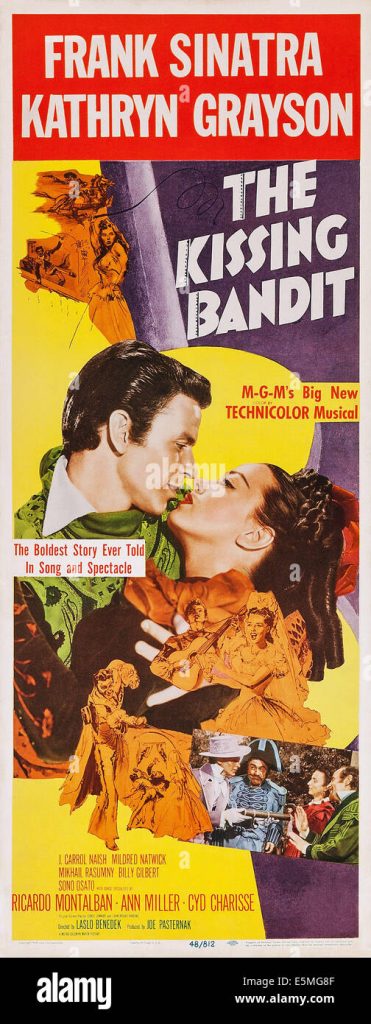
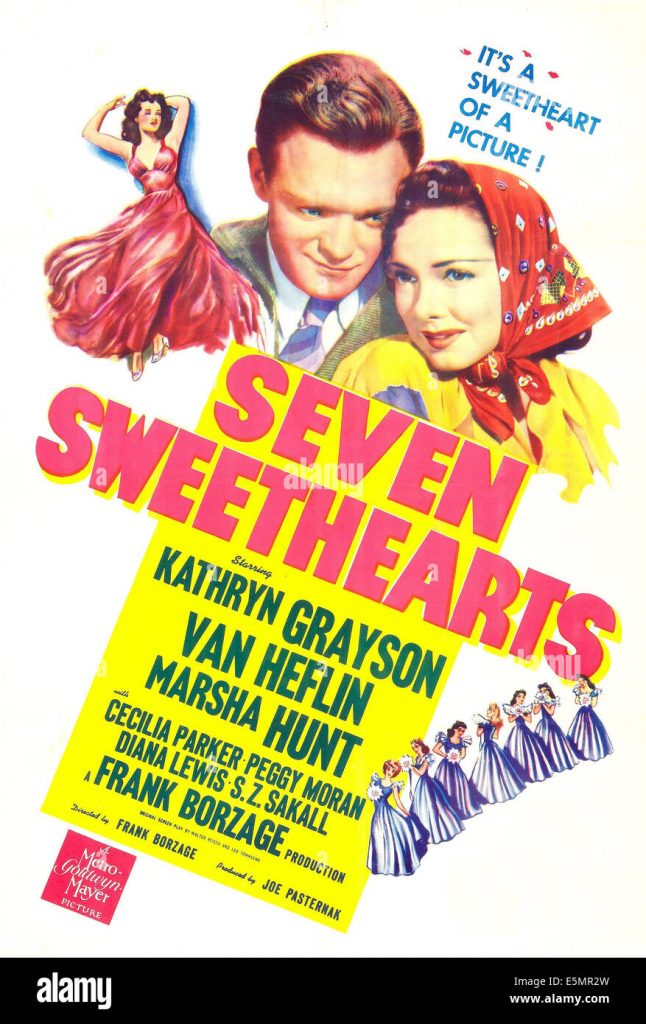
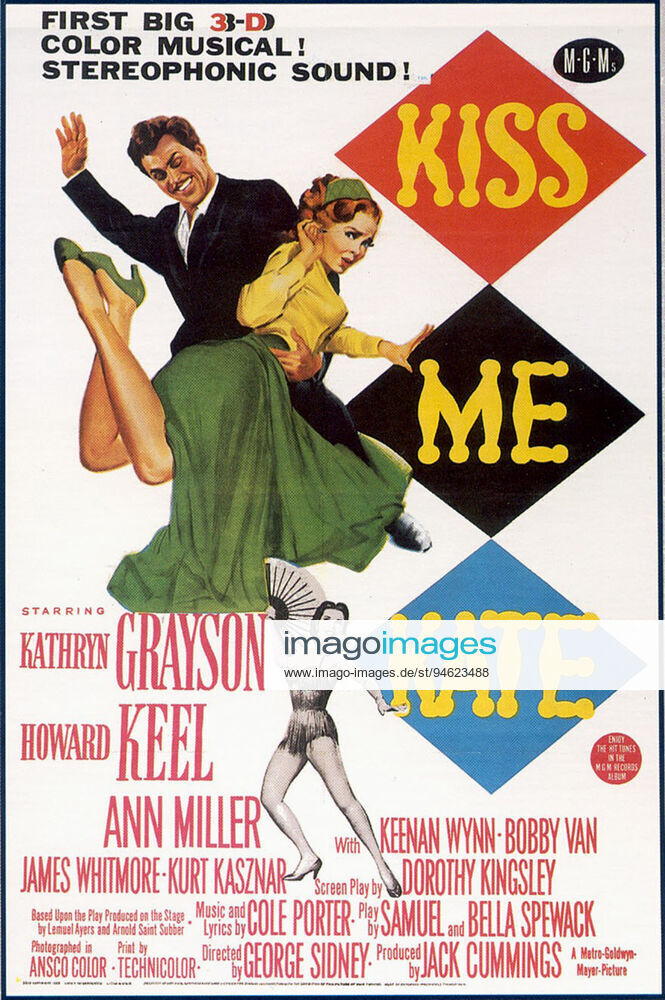
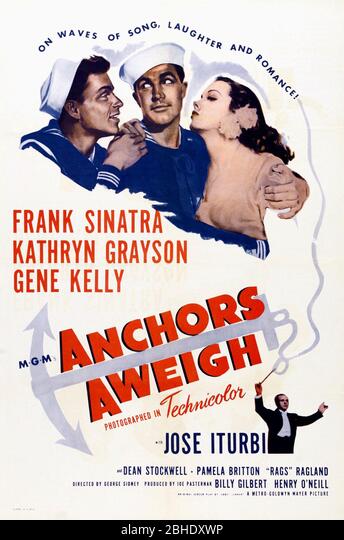
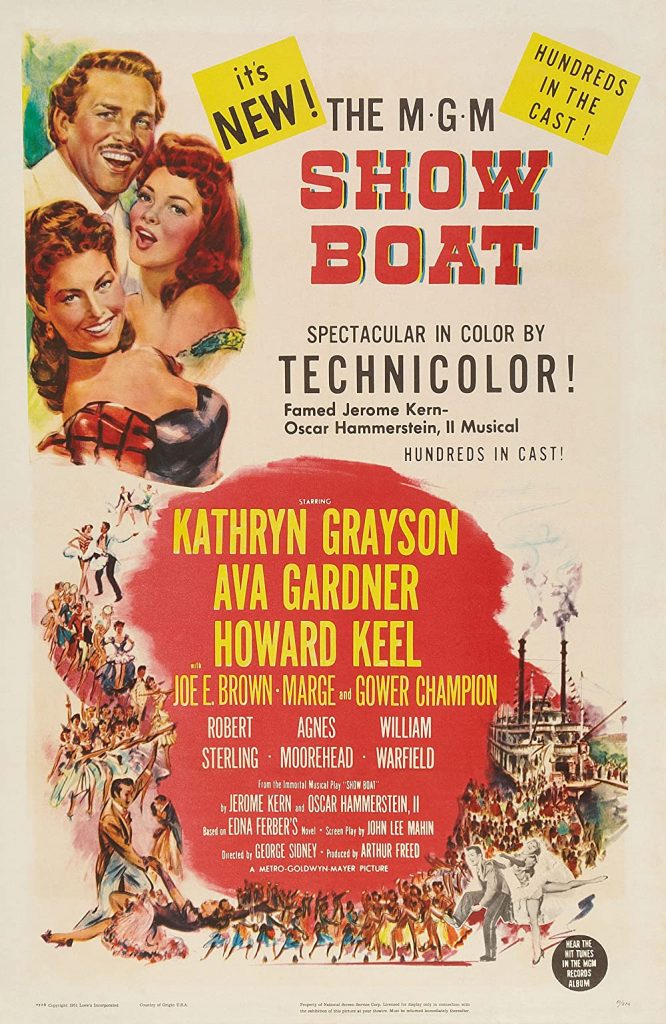
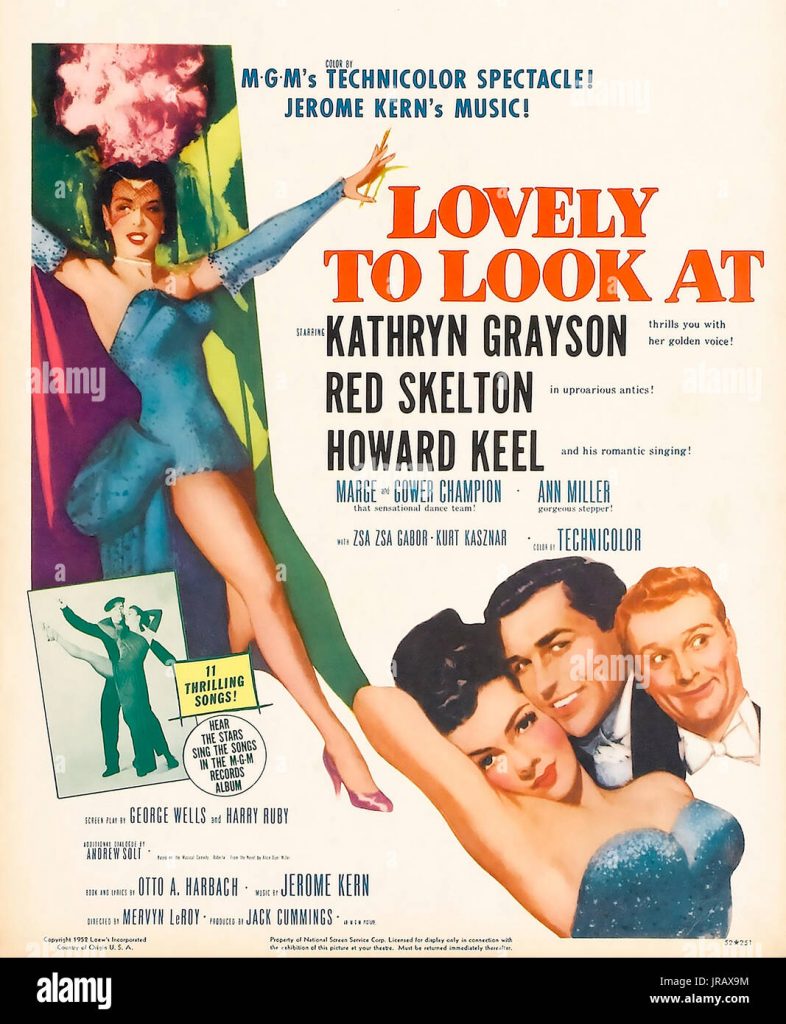
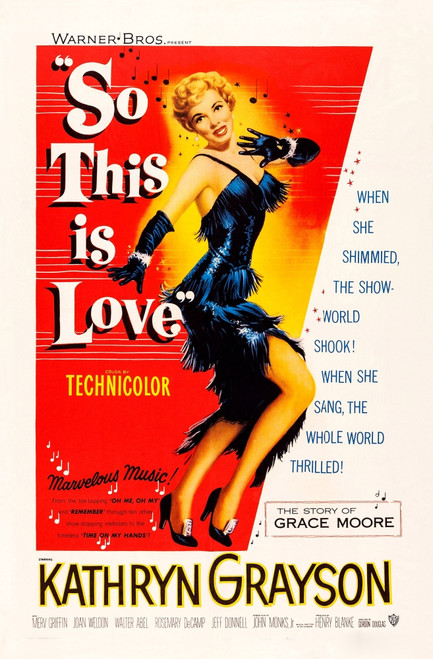
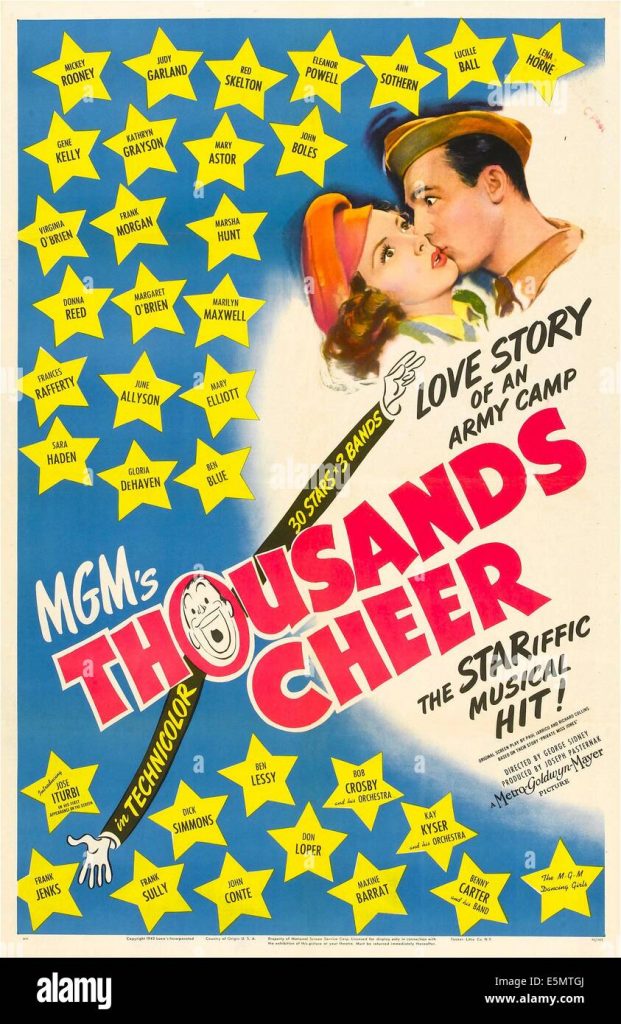
Kathryn Grayson was born in 1922 in North Carolina. She appeared in many of the great MGM musicals including “Anchors Aweigh” in 1945, “Showboat” in 1951 , “Kiss Me Kate” and “The Vagabond King” She died in 2010.
Ronald Bergan’s “Guardian” obituary:
When coloratura soprano Kathryn Grayson, who has died aged 88, sang five songs, including an aria from La Traviata, in MGM’s all-star patriotic parade, Thousands Cheer (1943), she began her 10-year reign as the prima donna of Hollywood. With her china-doll features, little turned-up nose and patrician manner, Grayson raised the tone of more than a dozen musicals. Although opera managers did not beat a path to her door, her clear, slightly shrill, small voice carried well on film in popular classics and operatic scenes.
Her classical training led her not to the opera house, but to the radio, in particular The Eddie Cantor Show, on which she was discovered by an MGM talent scout at the age of 18 in 1940. In the same year, she married the minor film actor John Shelton.
In her first film, Grayson, who was born Zelma Hedrick in Winston-Salem, North Carolina, played the title role opposite Mickey Rooney in Andy Hardy’s Private Secretary (1941), in which she sang Johann Strauss’s Voices of Spring prettily. The following year, loaned out to RKO, she chirped a few songs in Rio Rita, a vehicle for Abbott and Costello. At MGM, she was the charming juvenile lead in Seven Sweethearts and The Vanishing Virginian, both directed by Frank Borzage. However, her career, like her voice, hit the heights with Thousands Cheer (1943), in which Grayson, in uniform, lifted wartime audiences’ spirits by singing The United Nations March, with music by Dmitri Shostakovich.
The Hungarian-born producer Joe Pasternak, who had been the mentor of teenage canary Deanna Durbin at Universal, and had a taste for well-scrubbed nubile sopranos, now found a new protege in Grayson. He produced seven of her musicals, in which he attempted to bring a whiff of the concert hall and the opera house – and to spread mittel-European schmaltz – into mittel-America.
In Anchors Aweigh (1945), she spent more than two hours trying to get a singing audition with José Iturbi, helped by sailors Gene Kelly and Frank Sinatra, both in love with her. Grayson made two further films with Sinatra: It Happened in Brooklyn (1947), in which the pair deliver an ill-conceived rendition of Là Ci Darem la Mano from Mozart’s Don Giovanni, and the dismal The Kissing Bandit (1948), enlivened by her rendition of Love Is Where You Find It.
In Vincente Minnelli’s kitschy finale from Ziegfeld Follies (1945), she sings There’s Beauty Everywhere against a background of huge rocks, nymphs and mammoth bubbles. Two Sisters from Boston (1946) found her singing at the Metropolitan Opera with the great Danish heldentenor Lauritz Melchior (without a rehearsal) in a meaningless mish-mash of an opera based on themes by Mendelssohn and Liszt.
It was inevitable that the petite Grayson would be paired with the beefy and strident tenor Mario Lanza in That Midnight Kiss (1949) and The Toast of New Orleans (1950). They got to sing a number of operatic love duets together, but Grayson refused to work with Lanza again because of his boorish behaviour.
Thereafter, Grayson found her best partner in the virile baritone Howard Keel. In Show Boat (1951), the first of their three musicals together, she was perfectly cast as Magnolia, who falls for gambler Keel. Her finest moments were a joyous reprise of Can’t Help Lovin’ Dat Man of Mine, and when, at a New Year’s party, after her small voice singing After the Ball has failed to penetrate the noisy crowd, her father (Joe E Brown) stills them and encourages her to sing up, which she does touchingly.
By this time, Grayson had divorced Shelton (in 1946) and was about to divorce the crooner Johnnie Johnston (in 1951). She had a daughter, Patricia, with the latter, who “was too much of a golf fiend and party man”, whereas Grayson was a homebody. With her new-found freedom, Grayson unwisely left MGM after Lovely to Look At (1952), also with Keel, for a four-picture contract with Warners. Her reason was that she wanted to do concert and television work, which MGM would not allow her to do. However, the Warner Bros contract was terminated after two mediocre vehicles, The Desert Song (1953) and So This Is Love (1953), in the latter of which she made a fine attempt to play Grace Moore, the opera and film star of the 30s.
Grayson returned to her old studio in triumph in Cole Porter’s Kiss Me Kate (1953), proving that she had more fun in her than she had previously been permitted to reveal, especially when letting her hair down in the number I Hate Men. She also matches Keel in two lyrical duets, So in Love and Wunderbar. But the kissing for Grayson had to stop when, after one further film, the undistinguished The Vagabond King (1956), she retired from the cinema and appeared only in nightclubs and on stage. She replaced Julie Andrews as Guenevere in the original Broadway production of Camelot (1962), as well as touring in other musicals including Show Boat and Kiss Me Kate. In the 1980s, much to the delight of many faithful fans, she toured Britain in her one-woman show, An Evening With Kathryn Grayson, with her figure much enlarged and her voice only slightly diminished. She is survived by her daughter.
• Zelma Kathryn Elisabeth Grayson, actor and singer, born 9 February 1922; died 17 February 2010

